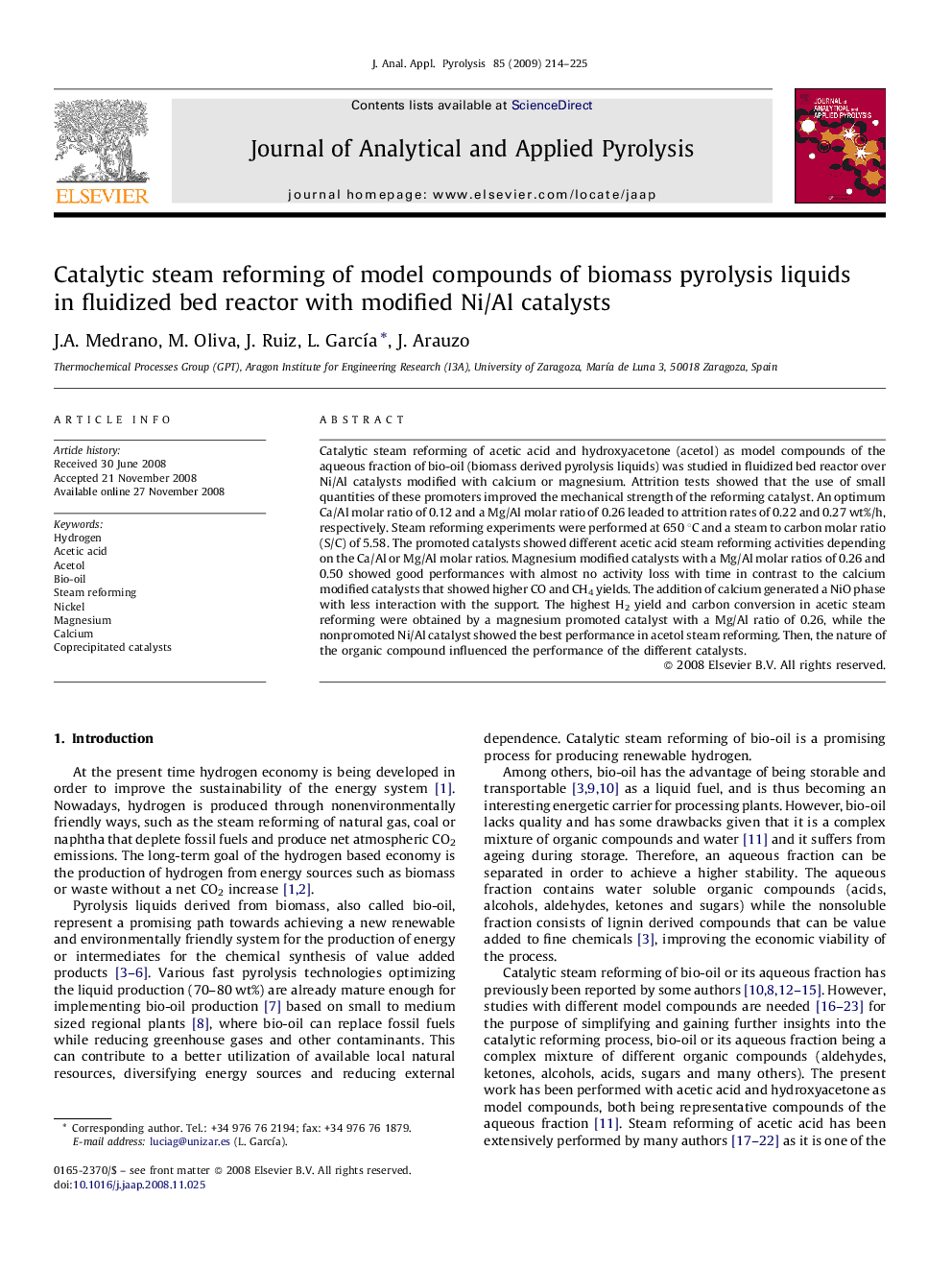| Article ID | Journal | Published Year | Pages | File Type |
|---|---|---|---|---|
| 1197514 | Journal of Analytical and Applied Pyrolysis | 2009 | 12 Pages |
Catalytic steam reforming of acetic acid and hydroxyacetone (acetol) as model compounds of the aqueous fraction of bio-oil (biomass derived pyrolysis liquids) was studied in fluidized bed reactor over Ni/Al catalysts modified with calcium or magnesium. Attrition tests showed that the use of small quantities of these promoters improved the mechanical strength of the reforming catalyst. An optimum Ca/Al molar ratio of 0.12 and a Mg/Al molar ratio of 0.26 leaded to attrition rates of 0.22 and 0.27 wt%/h, respectively. Steam reforming experiments were performed at 650 °C and a steam to carbon molar ratio (S/C) of 5.58. The promoted catalysts showed different acetic acid steam reforming activities depending on the Ca/Al or Mg/Al molar ratios. Magnesium modified catalysts with a Mg/Al molar ratios of 0.26 and 0.50 showed good performances with almost no activity loss with time in contrast to the calcium modified catalysts that showed higher CO and CH4 yields. The addition of calcium generated a NiO phase with less interaction with the support. The highest H2 yield and carbon conversion in acetic steam reforming were obtained by a magnesium promoted catalyst with a Mg/Al ratio of 0.26, while the nonpromoted Ni/Al catalyst showed the best performance in acetol steam reforming. Then, the nature of the organic compound influenced the performance of the different catalysts.
